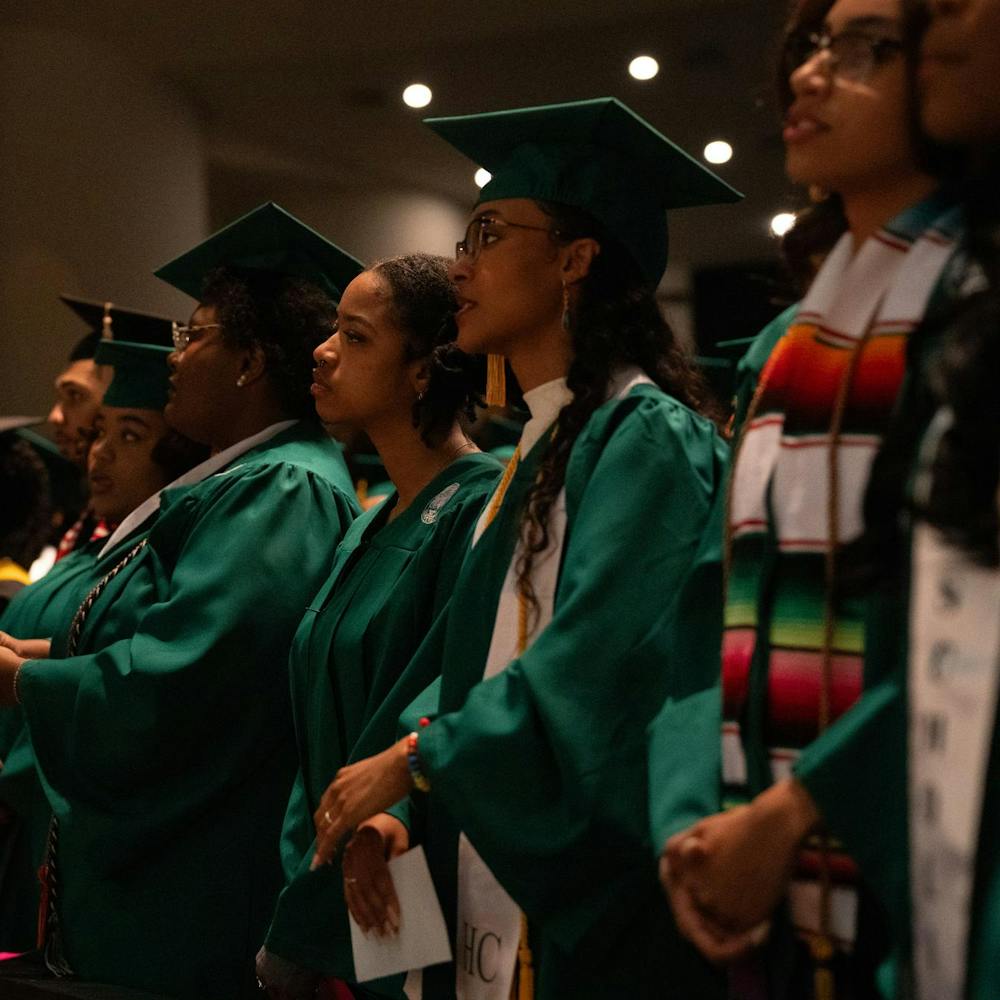Everyone knows what Valentine's Day is: It's that glorious (or torturous) day when sweethearts all around the world exchange gifts to show how much they care.
If you're attached, you spend a lot of money and expect your other half to do the same. You receive flowers, chocolates or boxers patterned with hearts and cupids (or hopefully, something more creative). You do your hair and go out to dinner. Or you might spend the day moping in your sweats watching "When Harry Met Sally," shoveling ice cream straight from the carton into your mouth. Or you just don't care and, attached or not, you refuse to participate in such ridiculous rituals.
No matter where you fall on the spectrum, one is forced to acknowledge Feb. 14 in some way or other — even if it is in protest.
So why do we do all this stuff anyway? I always thought spring would be a better time for Valentine's Day. Why would Hallmark pick February to be the month that's home to the holiday of lovers and commerce?
Hallmark probably wouldn't have picked February, but contrary to what might seem logical, Valentine's Day has historical origins that date back before the days of candy and card companies.
It's actually a very mysterious holiday, and numerous legends explain its origin. The two most widely accepted explanations come from Christian and Roman traditions.
The Catholic Church recognizes at least three different saints named Valentine or Valentinus. The legend basically boils down to a priest named Valentine, or something similar, who was in Rome during the third century. The emperor at the time decided single men made better soldiers and outlawed marriage for young men. Valentine continued to perform marriages for young lovers in secret. He was, of course, discovered and ordered to be put to death. It's rumored that while in prison, Valentine sent the first "Valentine" greeting to one of the jailer's daughters.
Valentine was a romantic guy — eventually sacrificing his life in the name of love. It's easy to see why he became popular among the masses. After his death, he was made a saint by the Catholic Church. For a long time it was "St. Valentine's Day," not "Valentine's Day," but in true American tradition we have secularized the holiday.
St. Valentine was a guy who not only lost his life so that others could marry, but also managed to fall in love himself despite knowing he would soon be put to death. Hats off to that jailer's daughter, too; she probably could have been punished for her involvement with Valentine. He's kind of a tough act to follow — those roses aren't looking too spectacular in comparison, and I know you didn't have to risk your life in the flower shop.
Another possible origin of the holiday is that it started in ancient Rome. Feb. 14 was a holiday to honor Juno, the queen of the Roman gods and goddesses. She was also the goddess of women and marriage. The following day, Feb. 15, began the Feast of Lupercalia. The Roman girls put their names into a jar, and on Feb. 14 the boys drew names to discover which girl they would be paired with for the duration of the feast.
Valentine's Day might be less traumatic if all coeds put their names in a jar and couples were randomly assigned. A similar system would make the pressure of finding a date nonexistent. If only we would have followed the tradition closer, we could have had a stress-free system for finding a date!
So how did we move from celebrating Valentine's Day with notes slipped through prison bars and arranged relationships to our current tradition? I can't say for sure, but I'm willing to bet the friendly corporations that have much influence on our lives had something to do with it.
When you walk into any store around this time of year, the first thing you see is a lot of red, pink and white. Valentine's Day goods are everywhere, and they're screaming buy now or become a social outcast.
OK, so it's not like we've been forced into it completely — buying and receiving cards and candy is fun. It breaks up the monotony of winter. However, it is clear we have strayed slightly from the holiday's original traditions. In that light, I'm going to suggest that we all celebrate Valentine's Day. It doesn't matter if you're part of a couple or not. If you really think about it, Valentine's Day is about love, and that includes loving yourself. Go buy a box of chocolates and draw hearts in the margins of your notes all day to celebrate. Pass homemade Valentine's Day cards to all those people in your lecture you've never talked to — it'll be fun.
Alessa Thomas is the State News film reporter. Send her E-Valentines at thoma470@msu.edu.






